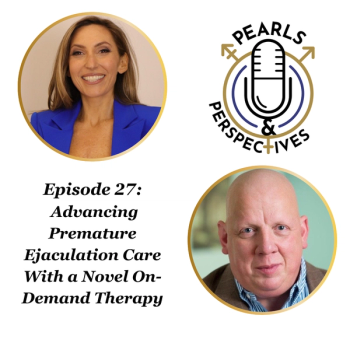
ISSWSH annual meeting research topics include lichen sclerosis, genitourinary syndrome of menopause

“For a lot of women with lichen sclerosis, they actually go for years without being diagnosed,” says Rachel Pope, MD, MPH.
In this video, Rachel Pope, MD, MPH, discusses research she presented at theInternational Society for the Study of Women's Sexual Health annual meeting. Pope is an associate professor of obstetrics and gynecology and director of Female Sexual Health at University Hospitals in Cleveland, Ohio.
Transcription:
What research did you present at the International Society for the Study of Women's Sexual Health annual meeting?
I was so lucky; I had my whole team there except for 1 person who did it virtually because she had another conference to attend. We each presented something that we've been working on. I presented on developing a patient-reported outcome for women with lichen sclerosis. Others reported on genitourinary syndrome of menopause and lichen sclerosis. Others talked about orgasm and mindfulness; another presentation was on vulvodynia and the pelvic floor. So there was a lot going on.
Could you discuss the scope of the problem of lichen sclerosis in women?
I think for males, lichen sclerosis is a little bit more obvious because of the strictures that it tends to cause. But for a lot of women with lichen sclerosis, they actually go for years without being diagnosed. And we can see women who have really severe disease just based on their exam, but have really not much in terms of symptoms. And then we see women with a lot of severe symptoms where their anatomy actually looks pretty normal. So my team and I feel it's important to develop some patient-reported outcomes so we can match up the symptoms along with the findings we're seeing clinically, and also then be able to follow the management for those patients. We also know [the incidence] is about less than 5%, but lichen sclerosis can go on to vulvar cancer if it's not treated, so it's an important diagnosis to make. And we see the symptoms increasing for women after menopause, but it still affects premenopausal women too. There's just there's so much more that we don't understand in terms of why it happens. We know it's autoimmune, but we don't know exactly why it pops up for certain women and why it doesn't for others and why it can be so severe for some and pretty mild for others.
This transcription was edited for clarity.
Newsletter
Stay current with the latest urology news and practice-changing insights — sign up now for the essential updates every urologist needs.






